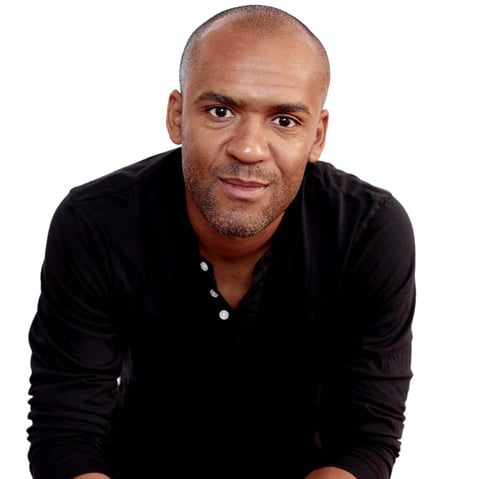In the age of Trump and Brexit, where powerful public institutions seem to be dismantling one by one, brands are stepping in to fulfill an important Never one to shy away from the big issues, Alain takes a deeper look into both individual and company purpose and explores why PR and Marketing are going through a Renaissance period.
-4327cf-original-1571751581%20(2)%20(1).jpg?width=736&name=336433-Alain%20Sylvain-RyanMuir-0959%20(1)-4327cf-original-1571751581%20(2)%20(1).jpg)
In your latest talk at OnBrand you spoke about how purpose and ethics are not the same thing: why and how do you think brands getting the two mixed up?
Well, I think there are two questions here:
The first is: Why are brands choosing purpose as a new ‘theme de jour’?
Firstly, it's because there's all sorts of data demonstrating that purpose helps business, partly because Millennials and Generation Z are more likely to consume products that are created by brands with a stated purpose.
There's also all sorts of data about employee engagement; people that work for companies that have purpose are more likely to be productive and loyal. In fact, some people are willing to sacrifice some of their pay in exchange for working for a purpose-driven company.
Lastly, I think a lot of that has to do with the failings of government and the socio-political climate around government and Brexit, and Trump. People are looking to governments to carry more of an ideological perspective.
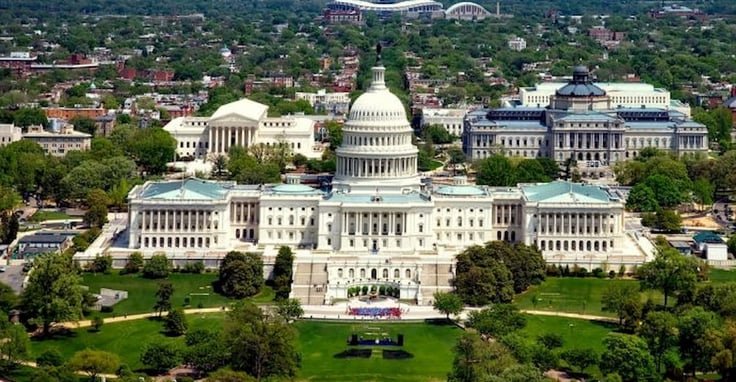
I think the two get confused really easily. When I talk to clients about their own purpose, they often say something like “we should help kids in Africa” - which is a worthy cause- but there is an ignorance about its linkage to their business.
Purpose is how we understand and think about words; it is the reason something exists, the higher motivation for something. And that motivation doesn't have to be about ethics. Ethics to me have a tinge of justice, of morality, and choice. You don't need those things for purpose.
Patagonia's claim to protect the environment 30 or 40 years ago really wasn't viewed as an ethical choice, it was always purpose. But over time companies have become more ethically aware. And so now Patagonia is viewed through an ethical lens, as a good corporate citizen. But ultimately, it's just about having a reason to do what you do.
Speaking of purpose, here are 9 examples of socially conscious brands and their impactful PR campaigns.
Do you think Patagonia an exception to the rule? Because if every business was as ethical as Patagonia, it would be quite hard for them all to be profitable. Patagonia seem to have found a nice balance with it, but I can't imagine every company finding as much success with this strategy.
Right now Patagonia is a Certified B Corporation, along with 1,800 other companies around the world, including Sylvain Labs. And the premise there is, let's get as many companies to commit to these standards as possible.
Not every company can behave like a Patagonia, but we're also far from really testing that theory. And Patagonia is just so evolved in this regard. They are so good to their employees as well as the volunteering and profit donation that they’re known for. They’re just an amazing company.
I worked with them many years ago. I was there, in California, for a meeting. It was 3 o'clock in the afternoon and someone busted into the conference room and said “There's a swell! There's a swell!”
I'm from Queens, New York, so I don't really know many outdoor terms, but I soon learned that a swell is when there are ideal surfing conditions. It’s understood in the Patagonia office in Venice, California, that when there's a swell: everyone goes surfing and the office closes. And sure enough, everyone got up, ran out, put their wetsuits on... and went surfing.
Now that's purpose-driven.
Also, purpose-driven doesn't have to be donating 1% of your profits to an environmental cause, it can be as easy as having a really clear point of view. Patagonia’s reason for being is to engage with and respect nature. That comes to life through nonprofit behaviors, but also just through the cool shit happening at work every day.

Circling back to something you said before, about stepping in for the government in the era of Trump and Brexit: the world seems to be reorganizing itself. Political institutions have eroded and corporations are becoming the new global superpower.
In this context seems almost natural that companies are stepping into these vacuums to take on social initiatives- because the state is no longer providing them. How do you see this trend unfolding in the future? Is the new structure of society one in which corporations provide social good?
I think in addition to the other factors that I mentioned about employee engagement and millennials, there is absolutely a reaction to this social vacuum and it's manifesting itself really interestingly.
Take the Democratic presidential debates for example, with 12 candidates, 2 or 3 of whom are business people. We've never seen that. Donald Trump, of course, is a Titan of the industry himself.
Simultaneously you have CEOs taking a stand on issues like gun control and immigration. Michael Bloomberg and Howard Schultz are just a couple of names in a growing list of old white men with guilt and power. Do I think is the new status quo? Yes.
I also think this is a carryover from the last 75 years of consumer behavior. In the West, people identify with brands more than they do their religions or governments. So the current corporate response is just an extension of this new self-identity. People identify themselves as a Patagonia person, or a Nike person, or an Apple person. With globalization, I think companies are filling all sorts of vacuums when it comes to identity politics.
To be clear: I don’t think it’s a good thing. Corporations are designed to generate profit.
In the West, people identify with brands more than they do their religions or governments. So the current corporate response is just an extension of this new self-identity. People identify themselves as a Patagonia person, or a Nike person, or an Apple person. With globalization, I think companies are filling all sorts of vacuums when it comes to identity politics.
You mentioned in a talk that brands are now like peers. So they have to be hyper empathetic and generally more human. In fact, most corporations in the eyes of the law are considered human. Perhaps because brands are becoming peers, they are actually anthropomorphizing into human beings. To what extent do you think a company can become human?
There’s potential for it, but it's scary when you think about it in the context of AI, deep fakes, and the like. Companies can certainly behave more like a human. It’s a key new feature of Modern Marketing; where companies are talking to consumers like peers, and present themselves as peers digitally and on social media.
Brands are speaking colloquially and no longer rely on big, abstract celebrity promises. They're trying to be much more straightforward. But what's most interesting is not only are companies acting more like humans - humans are acting more like companies.
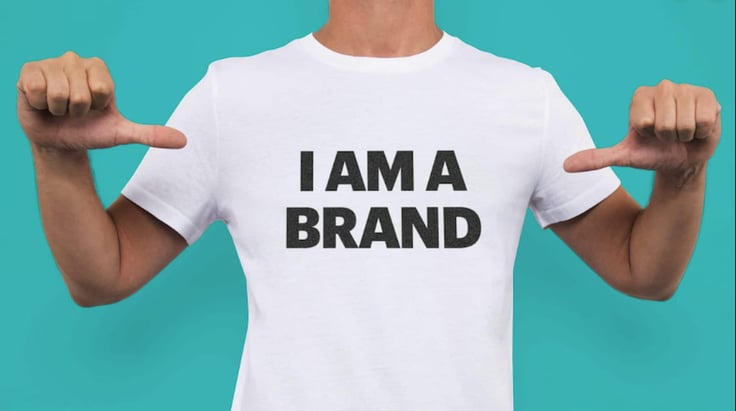
With things like personal branding?
Yes- everyone has a side hustle. We think about the little description below our name on Instagram the way a company thinks about their tagline. People carefully curate their image not unlike a company markets itself. Certainly, we all market ourselves in different ways. And I think there's a savviness about marketing that consumers now have that used to be reserved for corporations. They believe they themselves are products to be consumed. And again, I don't think any of this is good.
It could be argued that consumers are often savvier than brands themselves, who still seem to be in a certain amount of denial about the fact that they are money-making enterprises.
Yes. I have a 13-year-old son and he is incredibly savvy about marketing and brands. He knows when he’s pushed a message and when it’s authentic. And when he’s with his friends, they all discuss it. It's laughable that there's a boardroom somewhere where people think they're going to crack a 13-year-old kid. It's just not possible.
But marketing is changing. A lot of companies are beginning to market themselves through products and things that they actually do, versus advertisements. Before, companies would invest in big social media or Superbowl campaigns. Now they'll invest in a new product creation that provides utility for people. People are looking for utility versus promises from brands.
But it’s also why there’s this obsession with innovation. Apple will release a new phone with extra cameras because they feel they have to constantly create something new, as if Apple’s worth as a company is dependent on newness. Otherwise, it's just a promise.
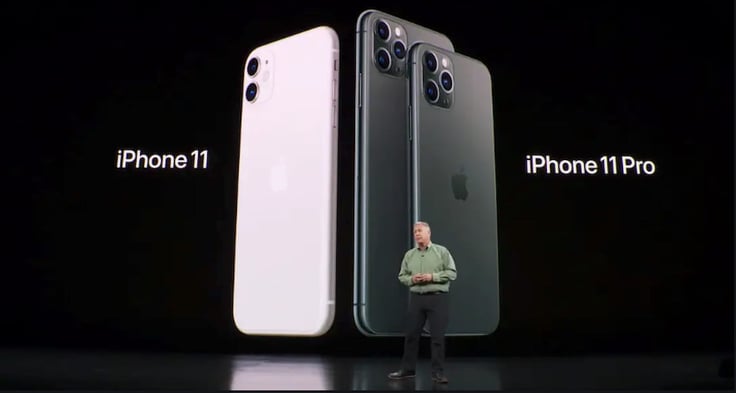
Do you think consumers actually need so much innovation?
No. Another presentation I've given a lot this year is about the fetishization of innovation. We use the term innovation so much and we're constantly “innovating” but not really doing anything that is meaningful or better.
In my research for that presentation, I came across a giant roll of toilet paper. It was considered a huge innovation because you don't have to replace it for a month. And it's ridiculous, it’s massive. But there are some things that are already perfect, like blue jeans.
Some people need technology, and usually, that need creates value. That's really what innovation should provide: a sense of value. I think there's a glut of new shit that’s not adding any value to our lives.
At the end of your latest talk, you spoke about the purpose of the individual. That people, as well as companies, have a responsibility to make a positive impact. Can you expand on this a little?
Well, back to the conversation around purpose and corporations filling a vacuum in society; I think we're deferring responsibility to institutions when really we all have a responsibility as human beings. We often talk about corporations and their purpose but we don't really think about them as organizations filled with real people who have their own personal missions and purposes.
I love the story of John Rock, the inventor of the birth control pill because it's a great example of how individual purpose and organizational purpose work both together and apart. Because he believed in the Catholic Church, but his purpose to serve women their medical needs was greater.
I told a colleague that what I wanted to achieve with that talk was to shake people up and make them think about what they're doing.
And she said, “So you want to do a wake-up call”. And I liked that. Because I think we're all struggling with this. We’re all wondering “Why are we here? What am I doing? What's the bigger reason?
More hard-hitting topics are being explored in the world of PR and marketing lately. It’s really healthy to ask confronting questions in the communications industry because ultimately, we shape culture. So we have to be extremely careful about how we do our jobs.
Yes, I would argue that the definition of marketing as “shaping culture” is a huge responsibility. I don't think many companies actually view it that way. I do some work with young people of color in the United States and I think a lot about images that they see and the promises they hear growing up. And how these promises are perpetuated by brands and by Hollywood.
Some of these messages cause real self-hatred in young people. If people in marketing really embraced the idea that we have the power to shape self-perception, imagine the differences you’d see. And I think it's getting better, marketers are becoming a little savvier about the consequences of their messaging.
It’s an evolutionary moment not just for business in general, but for PR in particular. Here are 10 reasons why PR became more important during COVID-19.
.jpg?width=736&name=336432-OnBrand-%2010%20October%202019%20-%20Amsterdam%2c%20The%20Netherlands%20-%20Image%20copyright%20Dan%20Taylor%20dan@dantaylorphotography.com-169-672d74-original-1571751575%20(1).jpg)
It takes a certain amount of courage to be the first voices to point out uncomfortable things.
Yes, Colin Kaepernick talked a lot about that. It takes bravery to be the first one. I think Nike were brave for supporting him, which is why it has been used as an example so many times.
I think people are in awe of what they can be, instead of thinking of what they should be. I try not to be nihilistic or negative on stage in these sorts of moments, although there's a lot of blind enthusiasm about technology and marketing.
I think there's a responsibility to be more than cynical. And that is the responsibility to be critical, and to put pressure on organizations- and ourselves- to live up to a purpose. We combat cynicism through action.
Healthy cynicism is helpful, but it’s much easier to tear something down than it is to offer solutions. How do we fight cynicism about purpose?
I think there's a responsibility to be more than cynical. And that is the responsibility to be critical, and to put pressure on organizations - and ourselves- to live up to a purpose. We combat cynicism through action.
But in reality, cynicism in itself is a very passive exercise. So we have to be more active about issues by asking questions. If you want to know more about TOMS business practices, for example, you should go learn about it, ask questions, and make your choices around what you consume and buy based on the answers. That's key.
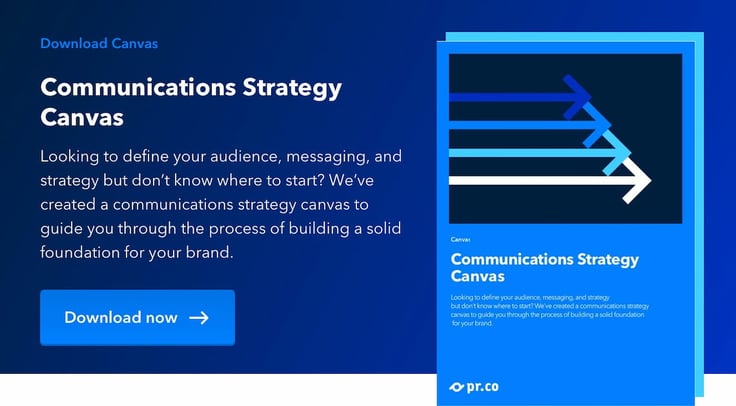
Alain is the Founder and CEO of SYLVAIN, a strategy and design consultancy that helps companies seize the reality and potential of their business, products, and brands. With over 13 years of experience in the industry, Alain has worked with leading brands like Google, American Express, Airbnb, Spotify, BlackRock, Diageo, Hilton, Samsung, Pepsico, AB InBev, Jet, IKEA, GM, Sonos, the NBA and others. Alain is also a board member at PopTech and a founding member at Kindred.. Connect on LinkedIn or send an email



